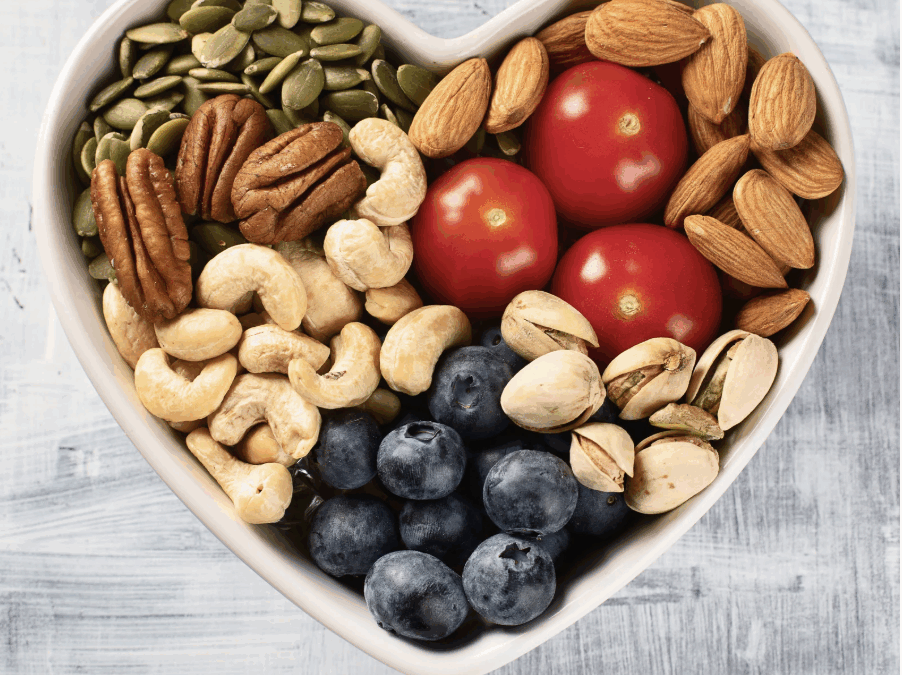This is the third entry in our ongoing series of posts about how healthy eating supports your ongoing recovery from a substance use disorder. The first entry was an overview of ways you can make your diet healthier. The second entry focused on breakfast and hydration.
In this blog post, we are going to focus on lunch and on your afternoon snack (that’s right, it is absolutely possible to have a snack while still advancing your goals around nutrition).
In addition to considering what you might eat for lunch, we are also going to talk about where you might eat it—because it turns out that the location of your lunch can have a real impact on how well that meal serves.
Let’s get cooking, shall we?
What’s for Lunch—and Where?
You might remember that our conversation about breakfast touched on the fact that many, many people skip the first meal of the day for one reason or another. When it comes to lunch, there is a fair amount of skipping among busy folks, but it probably is not the primary issue related to the midday meal.
What is the primary issue? We might argue that when it comes to lunch, it is all about location. Far too many folks—perhaps you yourself—eat lunch at their desk. Now, that might be somewhat better than skipping the meal entirely, but it still is not your best move when it comes to healthy eating habits.
That is true for a couple of reasons. First, eating at your desk makes it more likely you will eat some variety of grab-and-go food—most of which is not terribly healthy. Second, working through lunch while wolfing down your food means you do not truly take a break in the middle of the day. That might feel like efficiency (look at me multitasking!), but in reality, taking breaks makes a person less stressed and more productive.
When it comes to increasing the nutritional value of your lunch—and thereby supporting your ongoing recovery—packing your own food each day can be a great strategy. When you do so, you can ensure you get fruits and veggies, lean proteins, whole grains, and good fats—all while choosing foods you find delicious. Here are some quick and easy suggestions for packing your own midday meal.
It is also a great idea to share your lunch break with a friend or two. Maintaining strong, supportive relationships is important to your recovery, and sharing a meal is a great way to do just that.
Choosing a Good Afternoon Snack
You might have been assuming we would suggest you avoid having a snack in the afternoon. Instead, we want to suggest that having a snack is just fine, but making good choices for that snack is important. There are plenty of healthy options that can give you a boost of energy without upending the efforts you are making to improve your diet.
Trail mix, an apple with peanut butter, string cheese, and more are excellent options. And if you find yourself craving chocolate in the afternoon, you can indulge a bit by choosing dark chocolate, which offers health benefits other sweet snacks do not.
Work Toward Improvement Rather Than Perfection
You might be reading our suggestions above and in other entries in this series with a bit of trepidation. It might seem like we are asking you to change all of your habits at once, and that can seem mighty daunting.
So, we want to be clear: The goal you should set for yourself is improvement rather than perfection. You might still find yourself eating at your desk from time to time. You might choose fast food for lunch or a sugary snack in the afternoon. When that happens, don’t beat yourself up about it. The occasional indulgence will not upend your overall efforts.
Next Up: Dinner and Late-Night Snacks
The next entry in this series will focus on the evening meal as well as what you might eat to satisfy late-night munchies without undermining your ability to get the restful sleep that is so important to your recovery efforts. We are excited to ring the dinner bell and offer some delicious options for healthy eating in the evening.
On the Menu: Help Overcoming a Substance Use Disorder
Located in Henryville, Indiana, Wooded Glen Recovery Center is consistently recognized as one of the best substance use disorder treatment facilities in the nation. We are committed to providing personalized care that is grounded in evidence-based practices, our expertise and experience, and a spirit of empathy. We also provide exceptional care to address co-occurring mental health disorders—like depression, anxiety, and more—because mental well-being and an ongoing recovery go hand in hand.
Whether you choose our residential treatment program or our intensive outpatient program, you will experience top-notch care built around your specific needs. And when treatment comes to an end, you can count on Wooded Glen to provide ongoing support and resources as your recovery journey gets underway.
You can reclaim your life. Wooded Glen Recovery Center can help.

